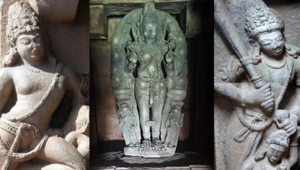
Significance of Constitution in India
This article brings out the need for a Constitution in a country. The most important purpose of a Constitution is it draws a limit on the power of the Government by outlining a framework within which the Government must function. For example – irrespective of who is the President of India, the powers and functions of the Office of the President remain the same.

A Constitution also serves the following purposes. These purposes also indicate the significance of the Constitution –
- It specifies who has the power to decide who will form the government. The Indian Constitution clearly specifies that India will have a democratic form of government indicating that the people of the country will chose the Government.
- It lays down the functions of the government. Governance basically involves three core functions – making laws, enforcing these laws and adjudicating on disputes arising in the process of enforcing these laws. According to the Indian Constitution, the legislature (Parliament at the Centre and Legislative Assemblies in the States) are responsible for framing laws; the Union Executive (Prime Minister and Council of Ministers) and State Executive (Chief Minister and Council of Ministers) at the centre and the states respectively along with the bureaucrats are responsible for enforcing laws; and the Indian Judiciary (the Supreme Court, High Courts and lowers courts) are responsible for adjudication of disputes. Thus a country on the basis of the above mentioned functions will have three organs of Governance – Executive, Legislature and Judiciary.
- It indicates the relationship between the three organs of governance. Apart from specifying the powers of each organ of governance, the Indian Constitution has also laid down an effective mechanism of checks and balances between the three organs of governance, to ensure that none of the three become too powerful.
- It limits the powers of the government to ensure that the Government doesn’t become arbitrary. The most common way of limiting the power of Government is by guaranteeing certain fundamental rights and safeguards to the citizens. The Constitution of India restricts the power of government through the fundamental rights enshrined in it.
- It enables the government to work towards achieving the aims and aspirations of the society. Any society would have certain aspirations that include peaceful co-existence, economic and social equality, progress and development. Government support and contribution is vital for achieving these common goals. While the aspirations and aims (Sovereign, Social, Secular, Democratic, Republic, Justice, Equality, Liberty) of the Constitution of India spelt out in its Preamble reflect the aspirations of the Indian society, the Directive Principles of the State Policy in Indian Constitution prescribe measures the Government should take in order to achieve the common good of the people and the overall development of the society.












